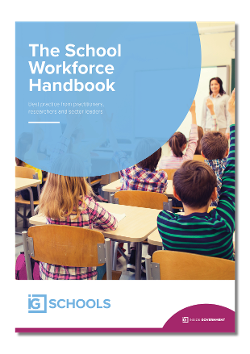Teacher CPD: How Can we Make it More Effective?
Dr Emily Perry, Sheffield Hallam University shares her thoughts around approaches to teacher cpd, and how to make CPD opportunities more focused on the development that teachers feel they need.
When thinking about professional development, I sometimes find myself feeling anxious about the apparent continual need to “improve teaching”. In this country, we have a tendency to lean towards a deficit model, in which our expectation is that teachers must always be identifying what they are not doing well and finding ways to do it better. I wonder if this contributes to teachers feeling uneasy in their roles, and less likely to want to stay in the profession.
Perhaps we could think about professional development differently. I wonder if we could move away from considering that we have to always strive to be better in our classrooms, to instead thinking about how we might feel better.
Of course, I’m not the first person to suggest this. For example, Fred Korthagen, from Utrecht University in the Netherlands, published a paper in 2017 (“Inconvenient truths about teacher learning: Towards professional development 3.0”) in which he describes how and why we might move towards “value-based” approaches to professional development. The potential benefit of “connecting the professional with the personal aspects of learning”, as Fred puts it, is that teachers then experience more autonomy and feel more positive about their professional roles. The learning starts from the learner (in this case the teacher) and supports exploration of professional identities, missions and values. The paper, along with other examples of Fred’s writing, can be downloaded from his website. It’s well worth reading.
An approach like this requires shifting the dynamic around professional development, but may not require too many major changes in our practice. With a shift in our thinking about professional development, we might encourage teachers to identify their purpose as a teacher and what they want to gain from their professional lives. They could spend time, individually and together, in reading, talking, thinking and planning. We might choose to value difference rather than push towards conformity, supporting teachers to explore their own, perhaps unique and idiosyncratic, approaches to their practice and helping them to understand what makes them feel positive in their roles.
In some ways, this move towards a different model of professional development has already begun. Many schools are adopting more individualised approaches to professional development, and increasing numbers of teachers are engaging in research into their practice. The challenge for us is to shift our thinking around the purpose of professional development, so that there is not (only) a focus on changing practice, but a stronger focus on the varied, individual values, beliefs and emotions of the teachers participating.
Therefore, for all of us who lead, develop and facilitate professional development, I set a challenge: next time you run a professional development activity, ask the teachers how they would like to feel in their classrooms. Use their responses as the building block for professional learning.
Read more about staff development in our IG Schools Workforce Handbook.
Explore further opportunities to collaborate with peers and find more useful content on the IG Schools Hub.





.png)